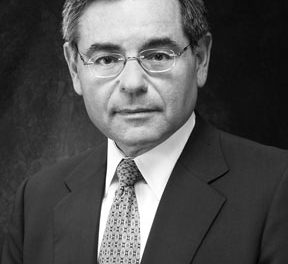GOVERNMENTS SEIZURE OF CASH AT AIRPORTS

Mark L. Horwitz
Since 911 American’s have become accustomed to putting up with security screening by TSA. The purpose of this heightened security is to prevent dangerous weapons from being brought onto the airplane. What many do not realize is that the screening by TSA has resulted in seizures of cash carried by passengers.
Taking cash onto a commercial airplane is perfectly legal. However, if you are traveling outside the country or returning to the United States from abroad, you must fill out a orm if you have over $10,000 in cash.
If TSA findsa large amount of cash in your luggage, purse or pockets, you will be in for an unpleasant experience. You will be called out of line, taken to a private room and interviewed by law enforcement offics. You will be questioned about the source of the cash and the reason for carrying the cash. If you refuse to answer or if the law enforcement officedoes not believe your story, the cash will be seized. You will more than likely miss your flightbecause of the time it will take for the law enforcement officeto complete the questioning, count the money and decide whether to seize your money. In most cases the money is seized. Rarely are individuals arrested and usually the individuals are not charged with a crime.
A person whose money was seized must then prove that they are entitled to get their money back. The government is not required to filea lawsuit to prove it is entitled to keep the money. Rather, an individual who wants their cash back must show that the government did not have probable cause to seize the money. This is the rule in civil forfeitures and is applicable to the Federal Government and most states. Civil forfeitures have been the subject of articles outlining government abuse of seizing assets from individuals who are never charged and legitimately earned the money. The civil forfeiture rules apply to airport seizures as well.
The end result of a cash seizure is that the person will have to expend a lot of time, energy and expense in trying to convince the government to return the property. In seizures by the Federal Government, individuals must petition the appropriate agency under that agency’s rules and establish a legal source of the cash, as well as the reason for bringing the cash onto the plane. As an alternative, the owner of the money may filea lawsuit to prove the money was from a legal source and the reason for bringing the money on the plane was also legal. Both of these methods may take months if not years.
The amount of cash that is large enough to result in an airport seizure is not subject to any legal minimum; it could be as little as $5,000 or less. That decision is made by the law enforcement offics called in to investigate the matter. A person who contests the seizure and has their money returned is generally not entitled to recover attorney’s fees, interest or damages caused by being deprived of the money.
The widespread use of civil forfeiture including seizures at the airport has resulted in several articles in the press criticizing the unfair seizures of assets. Law-abiding citizens have been harmed and businesses ruined. Recently, New Mexico passed a law that essentially abolished civil forfeitures because of the abuses. Many believe that it is fundamentally unfair for the government to seize someone’s money and then make the citizen prove they are entitled to its return.
Law Offices Mark L. Horwitz, P.A.
17 East Pine St.Orlando, FL 32801
P: 407-843-7733 • F: 407-849-1321
mark@mlhorwitzlaw.com • www.mlhorwitzlaw.com





